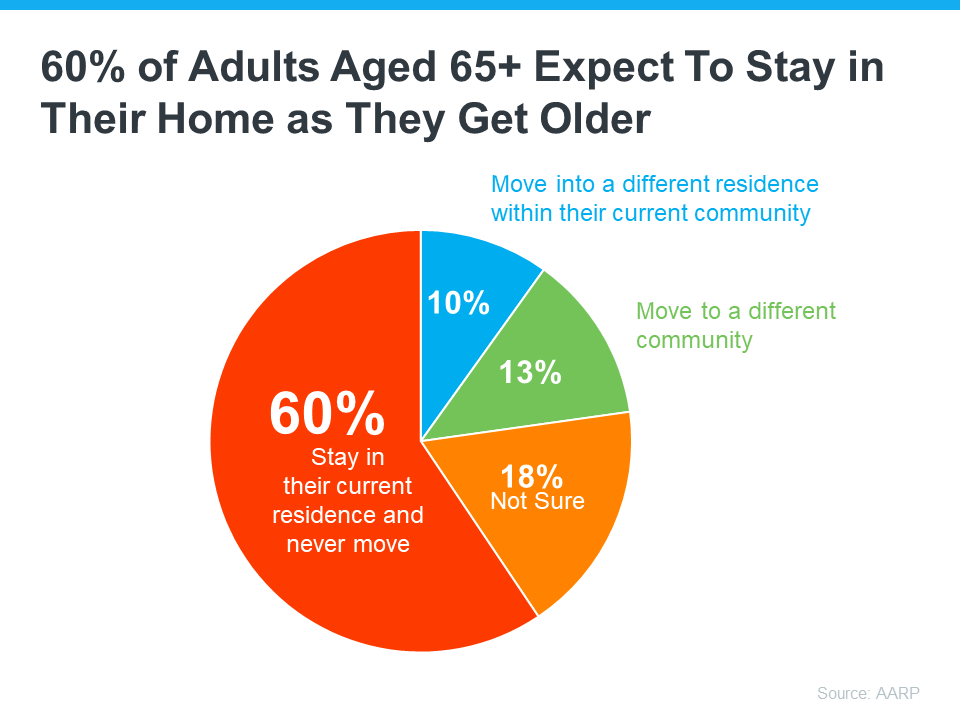Have you ever come across the intriguing term “Silver Tsunami” and found yourself curious about its significance and what it means for the 2024 housing market? Well, to put it simply, this captivating phenomenon, often discussed in the context of demographic shifts, refers to the aging population of homeowners, primarily in the age range of 65 and above. They are gradually reaching retirement age and, in some cases, considering downsizing or selling their homes. While this demographic shift is indeed noteworthy, there are several factors to consider that might temper its impact on the housing market.
Stay with us as we dissect the nuances of the Silver Tsunami, shedding light on the reasons why its effects might be more gradual and manageable than some may anticipate.
Understanding “Silver Tsunami” Further
In a recent HousingWire article, the term “Silver Tsunami” is defined as:
“. . . a colloquialism referring to aging Americans changing their housing arrangements to accommodate aging . . .”
Many anticipate that as baby boomers, a substantial portion will opt to downsize their homes. Given the sheer size of this generation, if this downsizing trend were to occur en masse, it could potentially reshape the housing market significantly. This surge in downsized homes hitting the market would undoubtedly influence the delicate equilibrium of supply and demand.
While this concept appears logical in theory, the burning questions remain: Will it materialize, and if so, when can we expect it to take place?
Why the 2024 Housing Market Won’t See a Huge Silver Tsunami Impact
Experts have mentioned that, at least for now, the much-anticipated silver tsunami hasn’t made a significant splash, and it’s unlikely to do so in the near future.
As reported by HousingWire:
“. . . the silver tsunami’s potential to transform the U.S. housing market hasn’t materialized significantly, and there are few expectations that it will anytime soon.”
Here’s a compelling factor to consider based on gathered data: A significant portion of the baby boomer generation prefers to remain in their current homes as they age. According to data provided by the AARP, more than half of the adults aged 65 and above who participated in the survey expressed their intent to stay in their current residences and age in place, as opposed to relocating (as illustrated in the chart below). This preference for aging in place underscores a crucial trend in the housing market, with profound implications for real estate professionals and homeowners alike.

Not all baby boomers have immediate plans to sell their homes or relocate. Even among those who do choose to move, it won’t happen in one swift wave. Rather, this transition will occur gradually, unfolding over an extended timeframe.
Mark Fleming, Chief Economist at First American, aptly puts it:
“Demographics don’t surge like a tsunami. The baby boomer generation spans almost two decades of births. This means that their impact will span about two decades.”
In Conclusion
If concerns about a Silver Tsunami causing upheaval in the housing market have been keeping you up at night, it’s time to put those worries to rest. Any influence stemming from the movement of baby boomers will be a gradual process, unfolding over several years.
As Fleming succinctly summarizes:
“Demographic trends don’t hit like a tsunami; they manifest gradually.”
If you’re thinking about making a move or keeping an eye on the 2024 housing market, why not connect with a reliable local real estate team, such as the McT Real Estate Group in San Diego? Our team is here to assist you every step of the way, whether you’re buying or selling a home. Reach out to us, and let’s embark on this journey together.